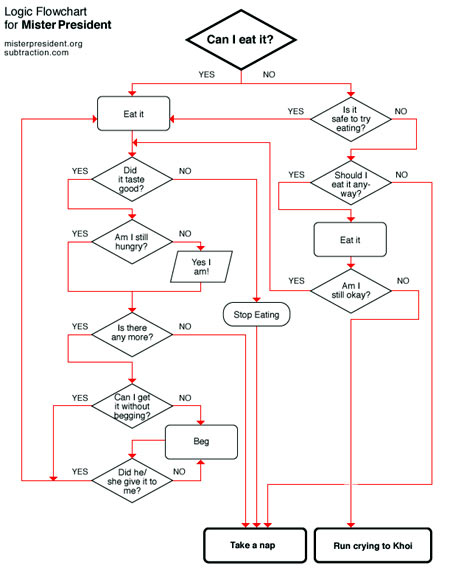 Up to this point, in this series on turning adventure seeds into full-fledged adventures, we’re down to the last of the questions that will give us the background information we need for our adventure. So far, we’ve covered the who questions, describing all the people involved in our adventure, the what questions that tell us what’s going on with the adventure, the where and when questions that tell us about the adventure’s location and time it takes place in. Now we’re down to the very last of the questions: why and how.
Up to this point, in this series on turning adventure seeds into full-fledged adventures, we’re down to the last of the questions that will give us the background information we need for our adventure. So far, we’ve covered the who questions, describing all the people involved in our adventure, the what questions that tell us what’s going on with the adventure, the where and when questions that tell us about the adventure’s location and time it takes place in. Now we’re down to the very last of the questions: why and how.
[Photo provided by exfordy via Flickr Creative Commons 2.0]
Why Questions
In many ways, these are the most important questions of all, for they give us the reasons that the adventure and its events are happening. They’re also the most often over-looked. Have you ever played through an adventure that doesn’t make sense? That’s usually because the adventure’s creator never fully answered the “why” questions.
Why do the PCs need to be the ones to go on this mission?
This is the question that covers our adventure hooks — the reasons why each of our PCs would go on this adventure. For that reason, we need to know the individual PCs involved in the game. Since we haven’t created a party for this adventure, this is a question you’d want to answer for each of the characters in your game.
Collectively, however, we can posit the reason the prince would hire the PCs as a group, rather than using some of his own men. The reason here is that the PCs are outsiders–which gives Alexei and Fedor plausible deniability. They can always claim that the PCs are acting on their own behalf and have other, ulterior motives on the princess.
Why did the leader hire these entertainers?
The princess wished for these entertainers because they’re the ones performing the most popular play around. Also, the wizard, who arranged for the performance in the first place, was an old adventuring buddy of Kirill, the head of the performing group. We can state that perhaps the wizard isn’t fully convinced about this marriage himself and is hoping that perhaps Kirill can turn the princess’ eye away from himself.
Why is (s)he holding the performance?
Entertainment is a traditional part of a princess’ confinement time. After all, she’s shut away from everyone else for six months. We could make part of the tradition for a princess’ betrothed to supply entertainment for her during her confinement.
Why is the mission taking place?
While we’ve pretty much covered this in earlier questions, it helps to spell it out clearly. The mission is taking place because the Prince Alexei views his sister’s marriage as a threat to his own inheritance of the crown. It would make the king’s favorite adviser a member of the royal family which could, potentially, threaten his inheritance. It would also give the wizard even more of the king’s ear. If he can somehow get the princess to marry his best friend, Fedor, he can put someone else into power who’s more loyal to him than to his father.
Fedor doesn’t want the marriage to take place because he’s been in love with the princess since he was a boy and he doesn’t want to see her married to anyone else, but particularly not an “old man” such as his master.
Do the PCs know?
The PCs are actually being given a false reason to go on the adventure–they’re being told that the princess is being forced to marry against her will. Alexei and Fedor hope that this will give the PCs even more reason to help them, hoping to engage the PCs’ on an emotional level, thereby making them more committed to the mission.
Why should the PCs go?
This goes back to our motive question, but with a slightly different twist. Instead of explaining why Alexei and Fedor would want the PCs, we explain why the PCs themselves would want to take the mission. Again, individual motives would have to be determined by the GM for each individual PC and for each individual group. For the group as a whole, though, one reason would be that Alexei and Fedor will pay very well for a successful completion of the mission. Also, it would place the future king of the country in the PCs debt–never a bad thing, since adventurers have a habit of causing trouble wherever they go.
Why are the entertainers taking this job?
Presumably the payment for the performance would be a huge incentive. But we can also say that the leader of the entertainers, Kirill, sees it as a way to thumb his nose at the king, using it as a way of counting coup against him. Also, perhaps Kirill owes the court wizard (let’s call him Roman) a favor from their adventuring days and this would allow Kirill the chance to repay it.
We’ve also brought up a couple more “whys” while answering the earlier questions:
Why would Fedor want the plan to fail?
Back in our who questions, we posited the idea that maybe Fedor wants the mission to fail. But why would he? Perhaps he’s having second thoughts about. Maybe he’s realizing the princess wants to marry Roman and that he wants her happiness above his own desires. Or perhaps he and Alexei had some kind of falling out and Fedor sees this as a chance to get revenge. The GM would have to determine the circumstances of the falling out.
Why does the princess want to marry Roman?
Perhaps our princess Darya has a crush on Roman–a May to December romance. Maybe her own father was cold and distant and she sees in Roman someone who cares for her and will take care of her.
Just to add another twist, let’s say that Roman doesn’t want to marry our princess. Very likely, he could see her as the daughter he never had. Let’s also say that he knows Fedor is in love with the princess and let’s say he thinks Fedor would make a very good husband for her. So perhaps Roman’s gotten wind of this plot on the part of the Prince Alexei and his apprentice and is actually hoping it will succeed, particularly if he believes that Darya and Fedor would actually be happy together. Maybe they were close friends growing up, which would give Roman a reason to believe that the marriage would be a happy one.
How Questions
Usually in an adventure, how to solve a mission is best left up to the players to figure out. Still, it’s a good idea to have at least one idea as to how to solve it. That way, if the PCs get completely stuck, the GM can drop some hints to get them moving again. We also have a few “how” questions that need answers:
How are the PCs going to fit in with the entertainers?
Entertainment groups have their own culture and the PCs are likely to stick out like sore thumbs. I’d actually leave it up to the PCs to determine how they’re going to fit in, but they do have a week to prepare, so Kirill can do his best to give them a quick introduction to the life of a traveling player.
How might they prepare for this mission?
Obviously, their week of training would be the major way for them to prepare for the mission. It’s also important for the GM to remain flexible and incorporate the players’ ideas for preparation into the mission.
How might they succeed?
Well, given all of our plot twists, success could very well be in the eyes of the players. If they do manage to get the princess out to marry Fedor, they’ll have succeeded at the parameters of the mission as originally outlined. There are several ways to go about this. One way would be to disguise the princess as one of the entertainers, another could be to smuggle her out in one of the prop trunks.
How might they fail?
The main way the PCs would fail is to be detected and reported to king. That would pretty much ruin every plan they could come up with (now that I’ve said that, some group will come up with that as their actual plan and make it work).
How are the entertainer going to perform?
The confinement compound could have a central courtyard that would provide a space for entertainers to come and perform in. Since our group are traveling players, they’re going to travel pretty light, meaning they actually use few props and scenery. So their performance is going to be an acting one, with the play’s emphasis being on character relationships rather than scenery and special effects.
Now we’ve answered our main questions and we’ve got the beginning of an adventure forming. Using these techniques yourself, you’re most likely to move back and forth between questions as answers to one question lead to more questions that need other answers. Keep working back and forth until you’ve answered enough questions– “enough” being defined as “until the adventure takes shape in your mind.”
Next time we’ll go back over our answers and begin pulling this information into an actual adventure.
Other posts in this series
 There are a number of RPG-related podcasts, everything from RPG news and GM tips to recorded play sessions. But there five non-gaming podcasts that regularly give me game ideas and I thought I’d list them here:
There are a number of RPG-related podcasts, everything from RPG news and GM tips to recorded play sessions. But there five non-gaming podcasts that regularly give me game ideas and I thought I’d list them here:





















